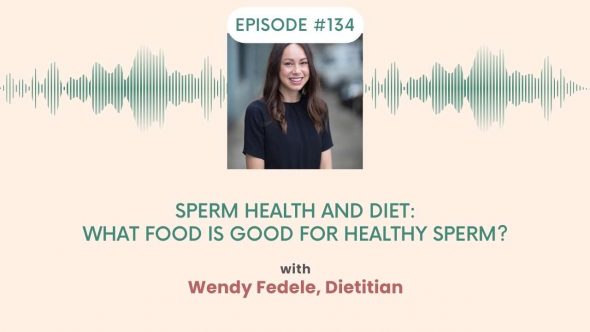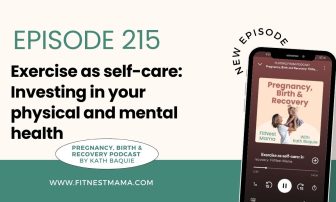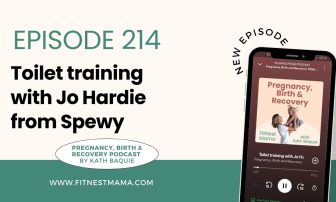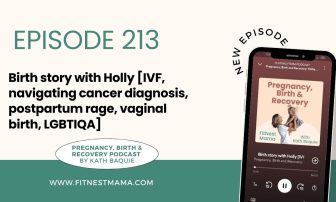Every day, more and more studies are published showing us the impact that our nutrition and lifestyle can have on our hormonal and reproductive health, our chances of conceiving and how our preconception and pregnancy diet can actually influence the lifelong health of our baby.
Does diet affect men’s sperm?
Diet can have a big impact on sperm health. For sperm to be produced there are many different nutrients that are involved in the various processes of sperm maturation.
- Many nutrients are involved in cell division and maturation.
- The structure of sperm during the maturation process – sperm incorporates more omega three fatty acids.
Sperm is very vulnerable to oxidative stress, which is a state that can occur naturally in the body, but can be accelerated by things like diet and lifestyle.
Diet and lifestyle can also contribute to things that can impact sperm health. But at the same time, our diet can also help protect sperm from some of those effects as well.
We also now know that what foods a man eats, and his diet can also then impact the lifelong health of the baby that he goes on to produce.
If there is a change in diet, how long can that then take to improve sperm health and quality?
There are a few different things to consider here.
To get the full effect of changes, you’d want to be ideally aiming for sort of two to three months, that sperm maturation process takes us around 74 days. So to get that full window of affect, that’s what you’d be aiming for.
But what is exciting is that some studies are showing that you can impact sperm health much more quickly, even 1 to 2 weeks some things will improve.
Often with changes for female fertility, the benefit can’t be measured so easily. Whereas with sperm health, you can sometimes see direct changes from one sem analysis to the next in terms of things like sperm count, motility, morphology (shape of sperm) and the formation of sperm as well.
3 Tips to help men make their sperm better.
Big starting place is to first look at the toxins, and the things that we want to start reducing in your lifestyle, but that can be having a negative impact on sperm to begin with.
Alcohol and sperm
It’s not what a lot of people want to hear. But if you can, to start reducing your drinking as much as possible, particularly if you are a heavier binge drinker. When we refer to binge drinking, it doesn’t necessarily mean that you have an alcohol problem or anything, but in this country, there does tend to be a culture where we might not drink much during the week, and then go out on the weekends and drink heaps.
So bringing down this drinking may have a really big impact.
Smoking and sperm
Looking at other drugs and smoking, it is definitely worth stopping smoking and any recreational drug use if that’s your thing.
Plastics / endocrine disrupting chemicals and sperm
And then also looking at your exposure to endocrine disrupting chemicals.
Consider the amount plastics in your life and chemicals like BPA.
If you are not sure where to even start, the government has some good resources online which has a fact sheet with the chemicals in your home and pregnancy.
Lucy at two lines fertility also has great resources for individuals and couples wanting to reducing their chemical exposure.
What food is good for healthy sperm?
Antioxidant rich foods
A big tip is to try and increase the amount of antioxidant rich foods in your diet.
A variety of vegetables are an amazing source of antioxidants. The more variety the better. Think dark leafy greens, orange coloured vegetables, red things like tomatoes, as many kinds and colours of vegetables as you can.
Also including a variety of fruit, and other plant based foods like herbs and spices.
Having those antioxidants can help to reduce some of that oxidative stress or damage that can occur to sperm health and sperm cells over that maturation process.
Omega 3 fatty acids
It is worth focusing on the types of fats in your diet which may have a big impact on sperm health.
Ensuring you have enough Omiga three fatty acids in your diet.
If you are a fish and seafood eater, this might be a couple of serves of oily fish each week would be really beneficial – salmon, sardines, mackerel, herring.
Nuts, seeds and sperm
Consider including particularly nuts and seeds, because there’s some really great research that daily nut consumption has a really positive impact on sperm parameters.
One study showed having a handful of walnuts every day, but other studies have used mix nuts may really help with sperm health.
Foods to avoid for sperm health
And then on the flip side, we want to be limiting saturated and trans fats.
Consider avoiding your fatty cuts of meat, cakes, pastries, biscuits, chocolates.
Limiting processed meats are a big one that we want to be limiting, and trying to instead have more olive oil, avocado, nuts and seeds.
Can tight underwear and getting hot lower sperm count?
Testicles are on the outside of the body for a reason.
Heat may have a big impact, and we wonder about the impact of heat exposure on sperm health. We might have to chat with an expert in this area on a future podcast episode.
Lifestyle and sperm health
For optimal sperm health we also want to look at our overall lifestyle and diet including:
- Regular exercise
- Optimising your sleep
Basically, if it’s good for your health, it’s likely to be good for your sperm health as well.
Mediterranean style diet for sperm health
From a general diet point of view, going for more that Mediterranean style diet with a big focus on plant based foods and good quality fats, and lots of antioxidant rich foods, that’s going to be great for both parties (man and woman).
There are particular nutrients that are really important for, and beneficial for sperm health.
Supplements and sperm health
If you have particular issues with your sperm, it is recommended you speak to your healthcare team.
It may be recommended that you have a semen analysis. Then, once it is known what the issue is, for example sperm morphology may be out of the range, or sperm count may be low, then there may be specific nutrients that may be specifically beneficial for you and in higher amounts than we might be able to actually get from your diet.
This is when specific supplements might help, recommended in conjunction with any tests that have been performed and your healthcare providers.
Supplements may help to boost particular nutrients required in your diet.
When to see a fertility dietitian
If you have been told that there are particular issues with your sperm, then it’s a great idea to come and chat to a fertility dietitian, and together you can come up with a plan for you.
But even if you haven’t been told that there are any issues, it’s still always great to be proactive and focus on optimising your diet as much as possible.
DISCLAIMER:
Please note that this transcription was completed with computer voice recognition software. Quite often unanticipated grammatical, syntax, homophones, and other interpretive errors are inadvertently transcribed by the computer software. Please disregard these errors. Please excuse any errors that have escaped final proofreading.





